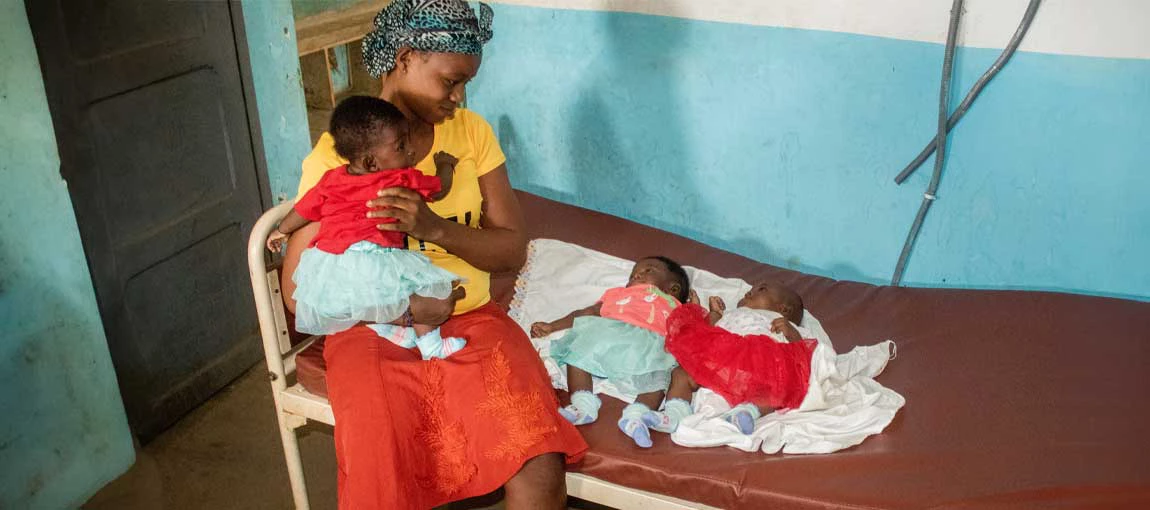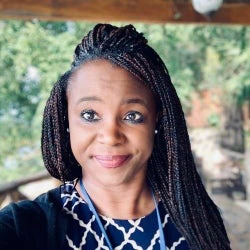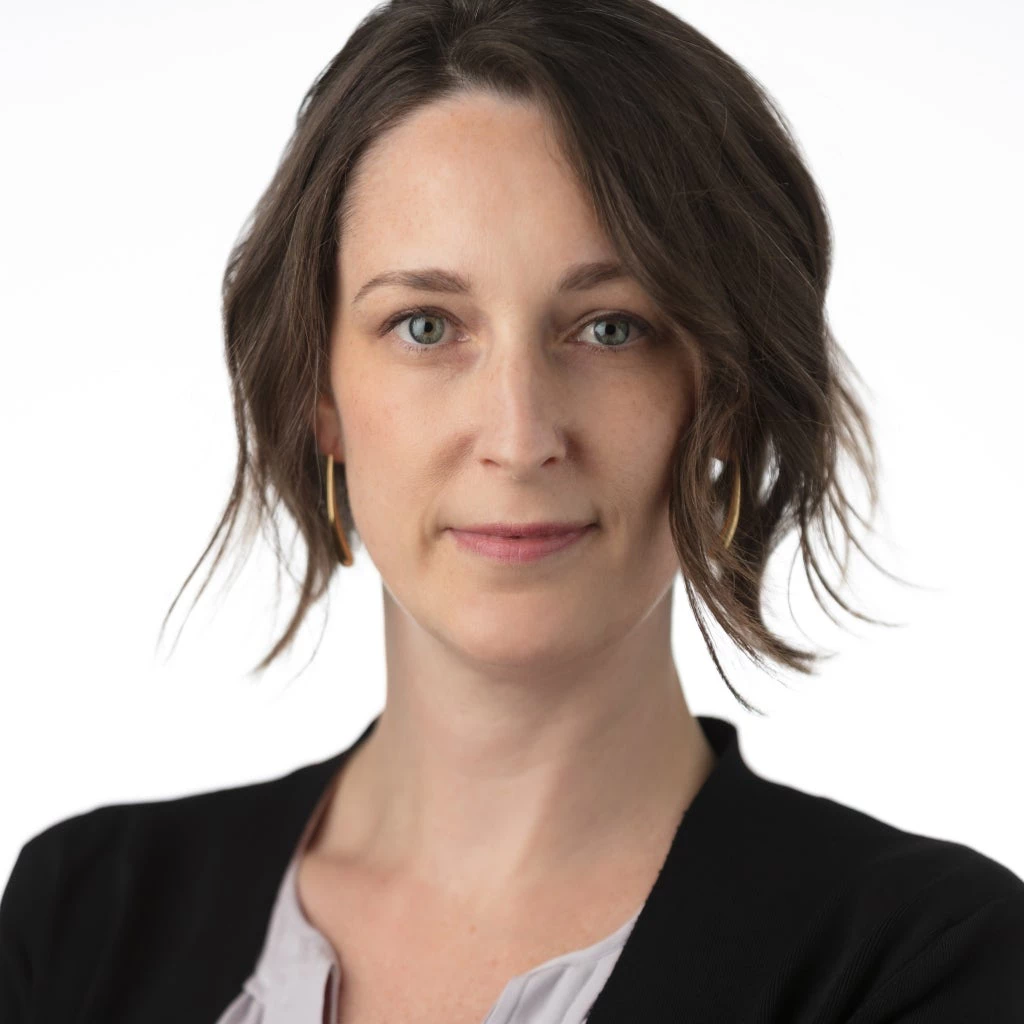 Clarisse, 24, with her three daughters during a consultation at the Hôpital Général de Référence de Ingende in Equateur province. Photo: John Ngombua, UNICEF
Clarisse, 24, with her three daughters during a consultation at the Hôpital Général de Référence de Ingende in Equateur province. Photo: John Ngombua, UNICEF
Could epidemic and pandemic-prone diseases, such as COVID-19 or the Ebola virus disease, be prevented or controlled without access to clean water? Can you ensure the delivery of quality health services in centers that have no electricity or proper infection prevention and control?
These are the questions that local communities in Eastern Democratic Republic of the Congo (DRC) were asking in response to public health messaging on hygiene prevention during the DRC’s 10th outbreak of Ebola, which lasted from 2018 to 2020. “Washing your hands can save your life” was a key message issued by public health authorities during the COVID-19 pandemic and during outbreaks of the Ebola virus.
These specific basic interventions are needed to improve healthcare outcomes and prevent the global spread of disease. The DRC has faced 15 Ebola outbreaks in 40 years. The 10th Ebola outbreak—the largest in DRC’s history—claimed almost 2,300 lives (66% of those infected), and cost twice the DRC’s annual health budget.
In 2018, the UN’s Secretary-General, António Guterres, issued a call to action on the critical issue of water, sanitation, and hygiene (WASH) in healthcare facilities. His call was endorsed in December 2023, with the adoption of a UN resolution advocating sustainable, safe, and universal water, sanitation, hygiene, waste, and electricity services in healthcare facilities.
These basic measures, which would help prevent the spread of COVID-19 or Ebola, include handwashing with soap, infection prevention and control, and safe waste management at health facilities. For countries like the DRC, constantly at risk of Ebola and other infectious diseases, investing in basic WASH infrastructure is highly cost-effective, as disease prevention is far less expensive than an emergency response.
No clean water
Community voices are an integral part of public health response—communities know what they need. In the 2018 Ebola crisis, many communities in the Eastern DRC lacked access to clean water, causing them to wonder: “How do you want us to wash our hands?” In feedback data, community members highlighted inequalities, including their lack of access to (clean) water, poor sanitation, and weak health structures.
The World Bank’s Regional Disease Surveillance and Systems Enhancement (REDISSE) Project, Phase IV is improving public preparedness, prevention, and response to outbreaks of disease in West and Central Africa. In the aftermath of the 11th Ebola outbreak in the DRC, which was in 2020, and in partnership with the DRC’s Ministry of Public Health, Prevention and Hygiene, UNICEF and WHO, this project has made key improvements to public health facilities to cover one million people in the DRC’s northwestern Equateur province.
Equateur, the first province to report Ebola cases way back in 1976, has experienced a total of five outbreaks since. Upgrades by REDISSE IV include equipping hospitals and health centers with water-drilling solar pumps, as well as installing pump-operated boreholes for clean water, solar panels for electricity, fenced biomedical waste areas, and triage and isolation centers for patients who are infectious.
 Sanitation facilities near Hôpital Général de Référence de Ingende in Equateur province. Photo: John Ngombua, UNICEF
Sanitation facilities near Hôpital Général de Référence de Ingende in Equateur province. Photo: John Ngombua, UNICEF
In April 2022, while REDISSE IV’s activities were being implemented, the DRC declared its 14th Ebola outbreak, again in Equateur. Thanks to the investments made after the 11th outbreak, there were only four confirmed cases of Ebola, compared to 119 during the 11th. Survivors were given more holistic clinical care, including analysis from laboratory samples (to help prevent the disease from spreading) and psychosocial support.
Improvements in WASH and electricity are crucial for other lifesaving interventions at health facilities, such as reducing maternal and infant mortality. The referral hospital in Ingende, a frequent Ebola hotspot, lacked electricity. Whenever expectant mothers arrived there at night, there was no lighting in the delivery room. “One midwife would direct the delivery and another would hold a torch," explained Elfie, the most experienced midwife on the maternity ward.
Higher-risk childbirth was even more worrying, since helping hands were busy with the lighting. The installation of solar power has made safer deliveries possible, even for multiple births, such as triplets. It has also led to improved satisfaction among patients, as well as an increase in hospital attendance and deliveries.
These successful interventions are set to expand under the World Bank’s Global Challenge Programs (GCPs) on Health Emergency Prevention, Preparedness and Response and Water Security and Climate Adaptation programs. These programs aim to address the need for sustainable and safe WASH infrastructure, so as to improve healthcare outcomes and prevent the spread of disease on a larger scale.
The World Bank is promoting multisectoral partnerships in these types of investments, given that determinants of health, such as WASH, do not fall within the mandate of government health ministries but are nonetheless fundamental to the delivery of health services.





Join the Conversation